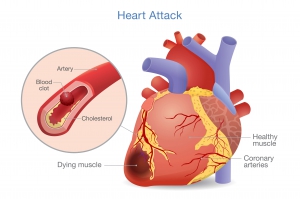Chronic heart failure is often accompanied by fluid overload, in which the patient presents with “congestive” heart failure.
It makes sense that we would think giving more fluids to these patients could be detrimental.
For years, fluid restriction was the standard treatment in conjunction with diuretics. Again, this makes perfect sense on paper: Why add fluid to an already overloaded situation?
However, studies over the past few years have strongly indicated that this is not necessarily the best for all patients.
For some patients, up to 50% according to multiple medical studies, they are actually dehydrated when they present to the ED with congestion secondary to heart failure.
Withholding fluid from these patients, could potentially cause paradoxical heart failure as a result of dehydration.
Chronic heart failure patient fluid up for debate
While the topic still remains up for debate as to exactly how much fluid these patients should have, there is supportive evidence to allow for a moderate intake, since the fluid overload is not within the systemic circulation per se.
For example, if the patient is receiving nitro and is on CPAP, there may not be any harm in giving liberal amounts of fluid. This is especially important if the patient appears dehydrated or complains of thirst.
As always, we must work within our organization’s guidelines. But this post should serve as food for thought on whether we have been missing the boat by withholding fluids.
